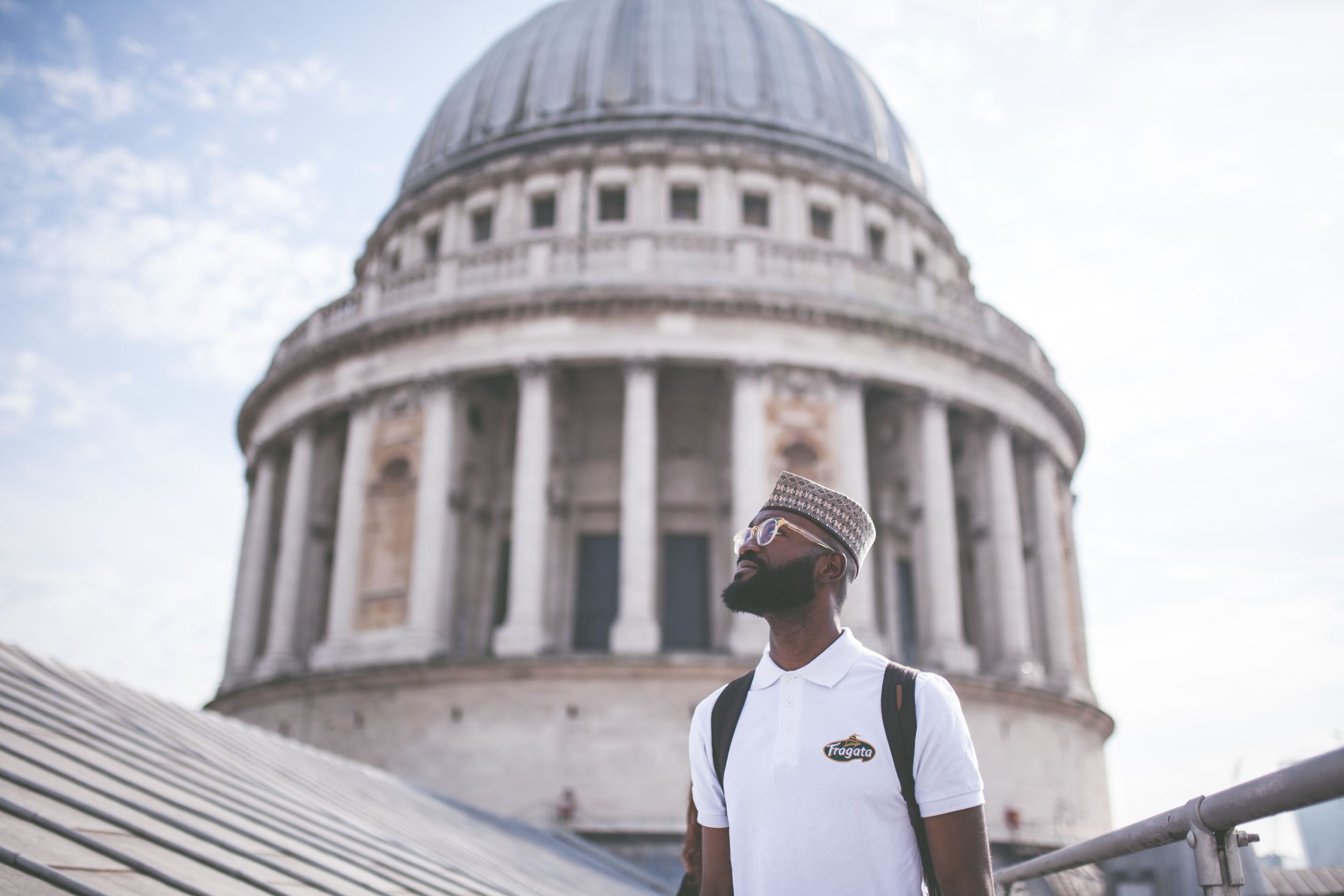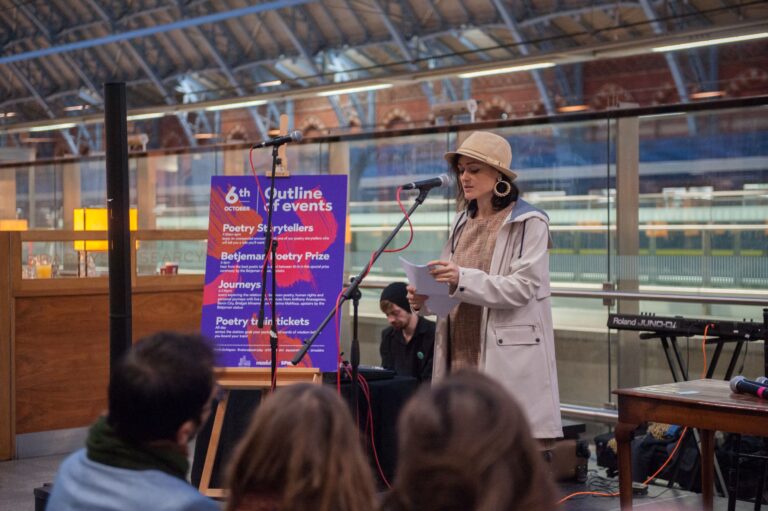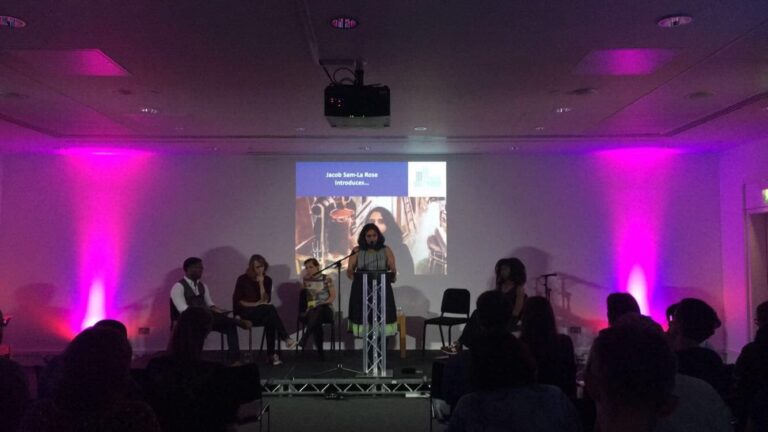First to Last Watch
by Inua Ellams
I have always been fascinated by heroism; by instances, decisions and situations in which we place ourselves in harm’s way, where we serve and protect. I was fascinated by St. Paul’s Watch and wanted to write about what might have called the ragtag bunch of civilians to the Cathedral’s service, to diffuse bombs, to abseil towards smouldering explosive devices armed with only buckets of water and wit. As I researched, I discovered dinner menus, toasts prepared in each other’s honour, suggested working hours, uniform etiquette and classes they took in preparation for the role, and how the defended the cathedral through harrowing experiences, particularly a night when third bombs feel and the sky “seemed brighter than day lit with flames”.
First To Last Watch
by Inua Ellams
And you wonder if the rumour of God came first,
if some force hummed within the Dean
or if purely logical, a practical need
drove his ST. Paul’s Watch call-out.
You wonder whose eyes the call crossed first,
A.G. Butler, R.P. Jones, B.M. Sullivan or E.S. Firth,
which, if any, dismissed its premise
as token, a pastime for unfit soldiers.
And who read, re-read, read again first
and found the cathedral’s bowel of a crypt,
whose thirst for battle did the meeting swell
and for whom was the thirst utterly quenched.
You wonder who dropped a pencil first
when its soft-scribble on notebooks stopped,
when the school-boys-playing-war mood turned
to poison-gas lectures, respiration drills.
And who of them marvelled at a bomb first,
who standing, viewed an impact fuse,
the jet propelled glider or parachute bomb
as baffling, as beautiful, as divine birth.
You wonder of them all who almost died first,
who excavating an incendiary,
hypnotised by its hidden spark, slipped a foot,
and falling, called out for Christ.
And the night thirty fell who arrived first,
did any liken bombs to hailstone rain
even as the sky over the city
was brighter than day, lit with flames.
You wonder who felt forsaken first,
who gaping at the dome’s hole,
the high altar shattered to splinters, fragments,
believed the kingdom had come and gone.
And when the war was done, who heard first,
who ran, returning uniforms,
who hummed what hymn and who rejoiced,
who sensing an emptiness, cursed.
You wonder who sipped the last toast first,
who, attending the final dinner,
hid a thin wrist’s unkempt trembling
for those they had lost, for what survived.






